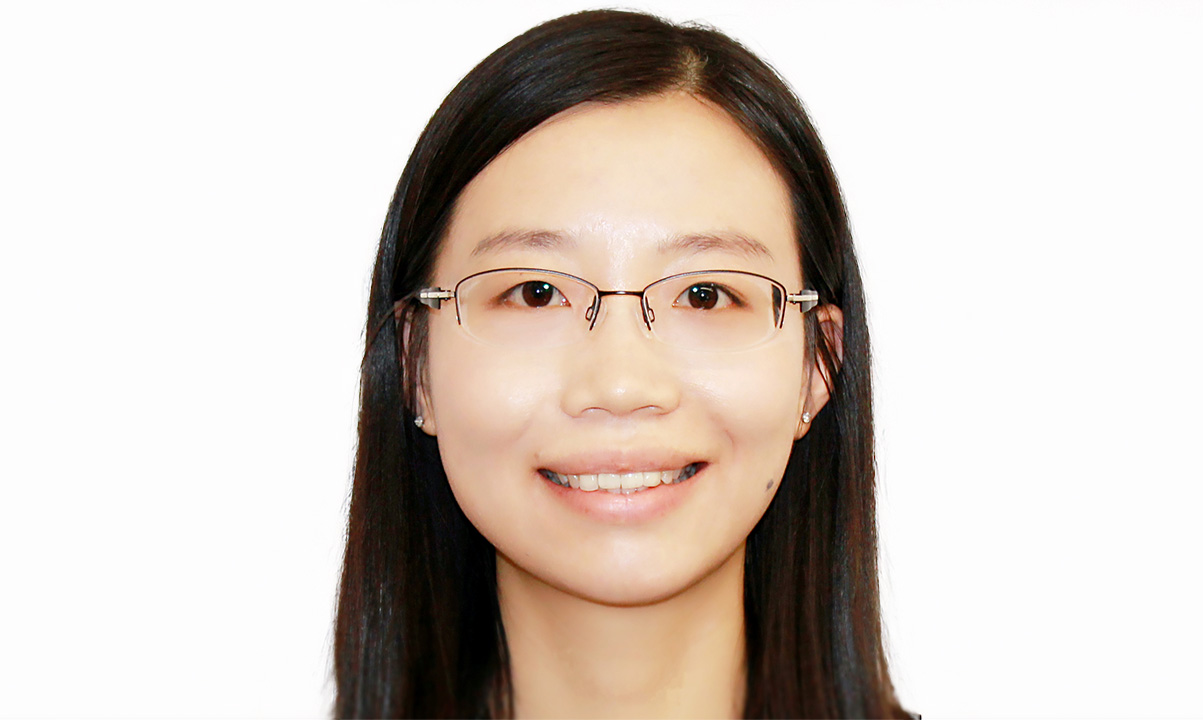Immigration and its effect on the job market are perennial hot topics. But there are many aspects to consider with such a complex issue.
McIntire Professor Jing Gong’s research on immigration policies and their impact on the information technology (IT) workforce sheds some light on one important area of the subject.
“Creation or Destruction? STEM OPT Extension and Employment of Information Technology Professionals” was published in the June 2024 edition of MIS Quarterly and was recognized as 2024’s INFORMS Information Systems Society Bapna-Ghose Social Justice Best Paper Award winner at the organization’s national conference on Oct. 20, 2024. According to INFORMS, a leading association for science and technology professionals, the award’s purpose is to “foster and encourage high-quality IS research that makes an impact towards improving social justice outcomes.”
Co-authored by Professor Xue Guo of the Robinson College of Business at Georgia State University and Professor Min-Seok Pang from the Wisconsin School of Business at the University of Wisconsin-Madison, Gong’s study offers valuable insights into how extensions in the Optional Practical Training (OPT) permit for foreign-born STEM (science, technology, engineering, and mathematics) graduates affect both domestic and immigrant IT professionals in the U.S.
An earlier version of this study gained recognition when it was featured in Poets&Quants in 2020. Now, with its publication in MIS Quarterly, the research adds findings to inform ongoing discussions about immigration policy and labor markets, particularly in industries fueled by STEM talent.
A Closer Look at the Research
Gong and her co-authors’ research delves into the effects of a key immigration policy—STEM OPT extensions—on the U.S. labor market. The OPT program allows foreign graduates of U.S. universities to stay and work in the U.S. for a limited period after completing their studies. For STEM graduates, an additional 24-month extension is available, providing them with up to three years of work experience in the country. The study specifically examines how this policy impacts domestic workers’ employment rates and wages in STEM fields, with a particular focus on IT professionals.
One of the study’s key findings is that the STEM OPT extension has actually led to a measurable increase in the number of domestic workers employed in STEM occupations. As Gong explains, “The OPT extension increases the number of domestic workers in STEM by 4.4% to 5.8%, and their average wage by 2.4% to 3.3%.” This positive effect is especially pronounced in IT occupations, where the number of domestic workers increased by 15.8% to 26.2%, compared to no significant effect on non-IT STEM fields. This finding challenges the assumption that foreign-born workers displace domestic talent and instead suggests that immigrant workers complement the U.S. workforce.
In addition to employment, the study found that wages also increased as a result of the OPT extension. “The OPT extension is associated with a 5.8% to 6.0% increase in the average wage of domestic IT workers, compared to a 2.1% to 2.6% increase in non-IT STEM occupations,” Gong notes. This wage growth further reinforces the idea that foreign workers are not suppressing salaries but are instead fostering a more competitive and innovative environment that benefits domestic workers.
Broader Implications for Immigrant and Domestic STEM Workers
The findings of Gong and her colleagues have significant implications for both immigrant and non-immigrant workers in the IT sector, as well as in broader STEM fields. For foreign-born workers, the STEM OPT extension provides a critical opportunity to gain work experience in the U.S., a country that is a global leader in innovation and technology. This experience can help them contribute more effectively to their fields, whether they remain in the U.S. or return to their home countries.
For domestic workers, the research suggests that the presence of foreign-born IT professionals enhances their employment prospects and boosts wages. “Foreign IT professionals bring new skills and knowledge, which benefit domestic workers by boosting innovation and entrepreneurial activities,” says Gong. This effect is particularly evident in regions with a higher concentration of foreign workers, where the study observed an increase in patent filings and new business establishments.
Policy Relevance and Future Directions
The study contributes to ongoing policy debates about immigration and labor markets in the U.S. and other developed countries. In an era when immigration policies are often politically charged, Gong’s research provides evidence that foreign-born STEM workers play a vital role in economic growth, particularly in the IT sector. The results of this study can help inform evidence-based policy-making, especially as the U.S. considers future immigration reforms.
The OPT extension remains unchanged since its introduction in 2016, allowing STEM graduates to work for up to three years in the U.S. As the U.S. navigates complex policy questions about immigration and labor, Gong’s research underscores the importance of fostering a diverse and skilled workforce to drive innovation and economic growth.



